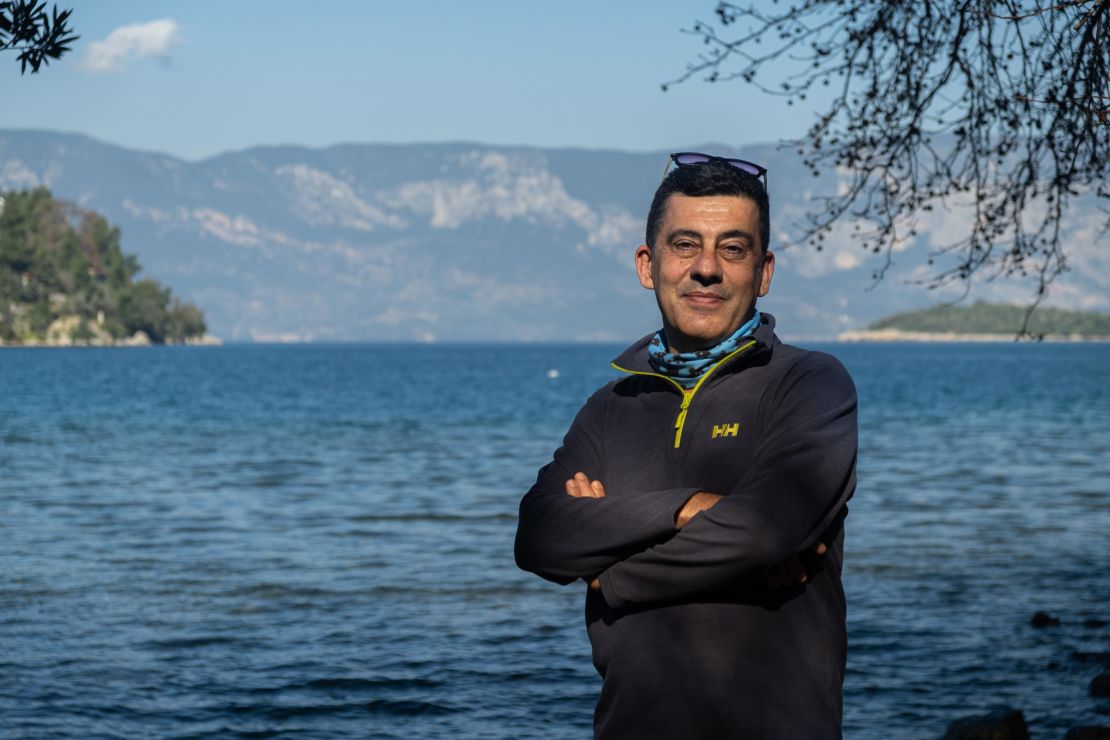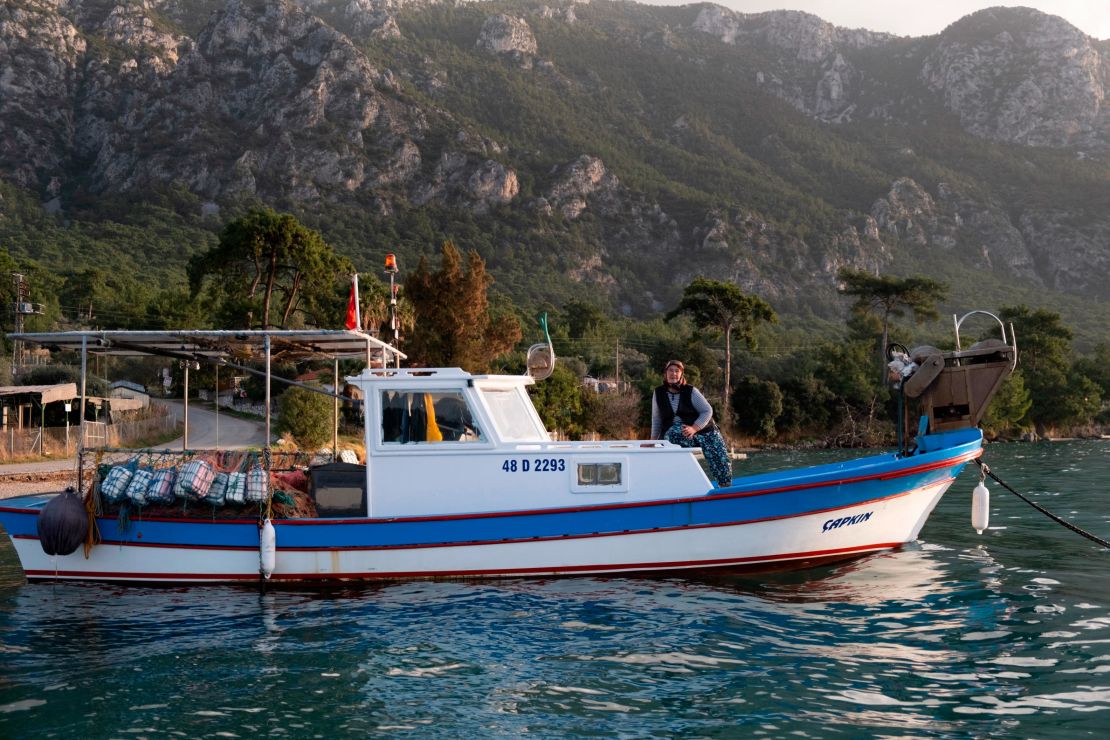Editor’s Note: Call to Earth is a CNN editorial series committed to reporting on the environmental challenges facing our planet, together with the solutions. Rolex’s Perpetual Planet initiative has partnered with CNN to drive awareness and education around key sustainability issues and to inspire positive action.
Famous for its crystal blue hues, sweeping beaches and unspoilt coves, the “Turquoise Coast” is one of Turkey’s natural wonders. Stretching more than 600 miles along the Mediterranean, the country’s southwest shore has long been heralded for its beauty, attracting tourists from around the world.
But while the sparkling waters look inviting, life under the surface is less so. In recent decades, the area has become severely nature-depleted due to overfishing, illegal fishing, tourism development and climate change. Critical habitat for loggerhead turtles and endangered Mediterranean monk seals has been destroyed, breeding grounds for sandbar sharks threatened, and native fish populations decimated.
An effort to revive the area is underway, thanks in part to Zafer Kizilkaya, president and founder of Akdeniz Koruma Derne?i (the Mediterranean Conservation Society). He is credited with successfully lobbying the Turkish government to build a network of marine protected areas (MPA) spanning more than 300 miles along the Mediterranean coast.
Today, Kizilkaya was awarded the prestigious Goldman Environmental Prize for his work to protect the ocean. The annual award is given to six grassroots environmental leaders, each working in a different continent.

Saving the bay
Kizilkaya’s mission began in 2007, following a diving expedition in G?kova Bay, a 62-mile-long gulf in the center of the Turquoise Coast. He had returned to his native Turkey after several years working as a marine researcher and underwater photographer in Indonesia and was shocked by the marine degradation. This was meant to be one of the most biodiverse parts of the Turkish coast, but it was barren, he tells CNN.
“It was like a nuclear war had happened underwater: there was no life, rocks were bare, there was no macroalgae,” he says.
Much of the Turquoise Coast and the Mediterranean has experienced a similar decline. According to the UN’s Food and Agriculture Organization, the Mediterranean is the world’s most overfished sea, teeming with industrial-scale fishing fleets such as purse seiners and trawlers.
Wiping out marine life has damaged the livelihoods of local fishers.

“Small scale fishing communities were in a panic,” says Kizilkaya. Realizing the extent of the problem, he decided that this was the moment to act, and set about trying to convince local fishers and other stakeholders that no-take zones and protected areas could help to reverse these trends.
Getting fishers on side was the biggest challenge, he admits, but because of the dire situation some started to listen. In 2012, Kizilkaya established Turkey’s first community-managed MPA in G?kova Bay.
But for the protected area to work no-fishing zones must be effectively enforced, explains Kizilkaya. He trained local fishers as marine rangers who could monitor the waters for illegal fishing and send alerts to the Turkish Coast Guard. While they did not have powers of arrest, locals were equipped with bodycams that could provide admissible evidence for court cases.
Lionfish on the menu
As the Mediterranean has warmed due to climate change, invasive tropical fish such as lionfish have swum in via the Suez Canal. They pose a threat to the ecosystem, as they prey on native species, overgraze vegetation and have few predators themselves.
To tackle this Kizilkaya took a novel approach, reaching out to some of Turkey’s famous chefs and setting them the challenge of creating delicious recipes with invasive fish as the key ingredient. He promoted the recipes, encouraging restaurants across Turkey to start serving dishes such as lionfish ceviche and lionfish and chips.
“We became a fishmonger,” says Kizilkaya, adding that the AKD continues to sell “tasty, cheap” lionfish caught by local fishers to restaurants.

Thanks to his work, G?kova Bay’s marine ecosystem has made a tremendous comeback. According to ocean conservation charity Blue Marine Foundation, the number of fish per square meter has increased tenfold since the implementation of no take zones in 2012 and incomes for local fishers have increased 400%.
“G?kova Bay became a great example for conservation,” says Kizilkaya, adding that his success helped him persuade the Turkish government to expand the MPA network southeastward along 310 miles of Turkish coastline.
Kizilkaya hopes that the Goldman Environmental Prize will add momentum to his mission. He’d like to see MPAs established across Turkey and the entire Mediterranean, and he hopes his work has opened people’s eyes to the crisis underwater and what we can do to solve it.
“The oceans are so neglected because nobody’s putting their head under the water,” he says. “This system works for the benefit of fish, sharks, monk seals and humans. If this is doable here, why not other places?”








